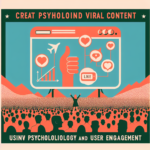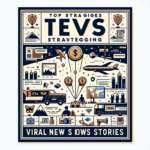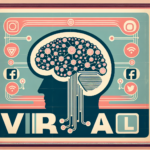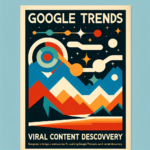“`html
Grasping AI in Content Creation
Welcome to our comprehensive guide on Artificial Intelligence (AI) in content creation. Ever thought about how AI can streamline your content creation process? Or perhaps you’ve pondered on the possibilities AI can offer in formulating your content strategy?
We’ll explore desirable AI tools, discuss not only their benefits but also the challenges, and even share tips to successfully integrate them into your content strategy. Famed science fiction author Arthur C. Clarke once said, “Any sufficiently advanced technology is indistinguishable from magic”. Let’s unravel the ‘magic’ of AI in content creation, shall we?
Grasping AI in Content Creation
What is AI in Content Creation?
Artificial Intelligence (AI) in content creation refers to the use of AI technologies to assist in generating, optimizing, and managing digital media. It helps in automating processes that were traditionally manual. AI tools can write articles, design graphics, and even analyze content performance.
Benefits of Using AI for Content Creation
AI simplifies many processes in content marketing and offers several advantages:
- Efficiency: AI speeds up the content creation process, allowing for quicker output.
- Cost-effective: Reduces the need for a large team, as AI can handle multiple tasks simultaneously.
- Personalization: Helps tailor content to specific audience segments, enhancing engagement.
- Data Analysis: Provides insights into content performance to improve future pieces.
Popular AI Tools for Content Creation
| Tool | Functionality |
|---|---|
| Grammarly | Checks grammar and suggests improvements. |
| Canva | Designs visual content with AI-powered suggestions. |
| Copy.ai | Generates written content ideas and drafts. |
Challenges of AI in Content Creation
Despite its benefits, AI in content creation comes with certain challenges:
- Lack of Creativity: AI struggles with generating creative content that requires emotional or cultural nuances.
- Quality Control: AI-generated text can lack the quality and depth of human-written material.
- Dependence on Data: AI’s effectiveness is dependent on the quality of data it learns from.
How to Integrate AI into Your Content Strategy
Successfully integrating AI with your content requires a strategic approach:
- Identify Needs: Determine which aspects of content creation could benefit from AI assistance.
- Choose the Right Tools: Evaluate and select AI tools that suit your specific requirements.
- Monitor and Adjust: Continuously monitor the performance of AI tools and make adjustments as necessary.
For additional insights on how AI can impact content marketing, take a look at this Forbes article on AI and content marketing.
Exploring AI-Driven Content Strategy
Implications of AI on Content Quality
Although AI greatly enhances content creation’s speed and efficiency, it’s equally important to understand the potential quality issues. Yes, AI can streamline content creation; however, a balance must be struck between speed and the quality of content. Poorly generated content, no matter how fast, won’t resonate with your audience or achieve your marketing goals.
Role of AI in Content Distribution
Not limited to creation, AI also plays a key role in content distribution. Algorithms can analyze user behavior and identify optimal times for posting, which platforms are best for certain types of content, and the frequency at which the content should be posted.
Finding the Balance: AI and Human Creativity
Despite AI’s ability to generate content, the input of human creativity remains vital. AI lacks the ability to infuse content with the emotional intelligence that human writers bring to the table. Therefore, the most effective content strategies employ a combined approach, with AI handling the more mechanical aspects of content creation, and humans adding emotional appeal and personal touches.
Testing the Waters: Experimenting with AI
One underemphasized aspect of integrating AI into content strategy is experimentation. Like with any other tool, it’s essential to test different AI applications to identify what works best for your specific needs — and to continue refining your approach based on your findings.
Advancements in AI for Content Creation
The capacities of AI are continually expanding, and the world of content creation is not an exception. AI platforms are evolving to generate more sophisticated content, more closely mirroring human writing. For example, OpenAI’s GPT-3 is a language prediction model that can write essays, answer questions, and even generate poetry.
Avenues for Improvement in AI Content Tools
While AI offers much potential for content creation, there’s room for improvement. Future developments in AI technology could address quality issues, improve understanding and implementation of emotive content, and reduce the dependence on large datasets for learning.
For more detailed perspective on future opportunities in AI-driven content strategy, consider this McKinsey report on the next wave of AI in business.
Grasping AI in Content Creation
Exploring AI’s Role in Identifying Content Ideas
AI doesn’t just produce content; it plays a significant role in generating high-performing content ideas. Advanced algorithms can sift through vast amounts of data to identify trending topics and predict future trends, allowing marketers to stay ahead of the curve. Using natural language processing (NLP) and machine learning, these tools can analyze existing content, social media conversations, and search behaviors to suggest topics that will likely engage audiences and attract traffic.
Leveraging AI for Audience Insights
AI excels at analyzing audience behavior, which is important for content ideation. By examining patterns in user interactions, AI can offer insights into what type of content resonates with specific audience segments. This audience intelligence helps tailor content ideas to meet the preferences and needs of different groups, enhancing the chances of content success.
AI-Powered Keyword Research
Identifying the right keywords is fundamental to content performance. AI tools can automate the keyword research process, providing a list of trending keywords that can be used to create content that aligns with search engine algorithms. These tools can analyze the competitiveness of keywords and suggest long-tail keywords that have a higher potential for ranking well.
Competitor Analysis Using AI
Understanding what works for competitors can be valuable in shaping your content strategy. AI tools can scan competitor websites and social media to provide insights into successful content strategies. This analysis can include breakdowns of content types, formats, and publishing frequency, helping you develop a strategy that leverages competitor strengths while identifying gaps you can exploit.
Testing and Refining Content Ideas with AI
Before committing to a content piece, AI tools can predict its performance based on historical data and pattern recognition. These platforms can simulate how a piece might perform across various platforms, enabling you to refine ideas before investing in full-scale production.
AI-Driven Content Calendars
Scheduling content is critical to maintaining consistency and avoiding audience fatigue. AI can assist in setting up content calendars by predicting optimal posting times based on data patterns. These tools can adjust schedules dynamically, scheduling more content when engagement is high and scaling back during slower periods.
For actionable insights on using AI to augment your content strategy, consider reading this CIO guide on integrating AI with content marketing.
Evaluating the Impact of AI on Content Strategy
Impact of AI on Content Planning
AI significantly affects content planning by predicting trends and understanding audience preferences. With AI’s ability to analyze large datasets and pull from various sources, content planners can receive strategic insights invaluable for future content. This allows marketers to pivot strategies quickly and remain relevant in fast-changing industries.
AI’s Influence on Content Adaptation
AI also impacts how content is adapted for different formats and platforms. Using machine learning and natural language processing, AI tools can automatically reformat and adjust the tone of content to suit various mediums, such as blogs, social media, and video scripts, ensuring content remains effective across platforms.
Enhancing Content Moderation with AI
AI enhances content moderation by automating the detection and removal of harmful or inappropriate content. Utilizing algorithms, AI can identify patterns that signify spam, offensive language, or misinformation, ensuring brand safety and compliance with platform guidelines.
Emotional Analysis in AI Content Tools
Newer AI technologies are advancing towards understanding emotional cues within content. Tools that analyze sentiment can assess content tone, which is critical for maintaining brand voice and creating emotionally resonant messages. However, genuine emotional insight still largely relies on human creativity.
AI and Long-form Content Creation
Though AI excels with short-form content, it’s gradually improving in crafting long-form content. Upcoming models are designed to produce more detailed and nuanced narratives. Despite this, human oversight is still necessary to ensure depth and authenticity.
AI’s Role in Agile Content Strategy
AI fosters agility within content strategy, allowing for rapid response to market changes and trending topics. AI-powered analytics and insights provide real-time data, enabling companies to tweak their strategies swiftly and effectively, thus maintaining a competitive edge in their industries.
For more information about AI advancements in content creation, check out this Forbes article detailing breakthrough trends in AI.
Wrapping Up: AI in Content Creation
AI provides a transformative edge in today’s digital content creation landscape, expediting processes and enhancing efficiency. From generating fresh content to extracting valuable insights from data and tailoring content to diverse audience segments, AI’s role cannot be overstated.
However, along with the impressive benefits, it’s essential to note AI’s limitations, particularly in generating creative content with emotional resonance, emphasizing the irreplaceable role of human creativity.
With the continuous advancements in AI capabilities, the future of content creation and marketing looks bright, as these tools evolve towards generating more sophisticated content and improving their understanding of emotive content.
Frequently Asked Questions – FAQs
What is AI in Content Creation?
AI in content creation refers to the use of AI technologies to assist in generating, optimizing, and managing digital content. It automates processes traditionally done manually, such as writing articles, designing graphics, and analyzing content performance.
Why is AI important in Content Creation?
AI is essential in content creation as it enhances efficiency, makes the process cost-effective, personalizes content for specific audience segments, and provides valuable data analysis to improve future content.
What are some challenges of using AI in Content Creation?
Some challenges include AI’s struggle with creative content that requires emotional or cultural nuances, possible lack of quality in AI-generated text, and AI’s dependence on the quality of data it learns from.
How can AI and Human Creativity be effectively combined in Content Creation?
A combined approach works best, with AI handling factual and practical aspects of content creation and humans infusing emotional appeal and personal touches. This balance ensures high-quality, engaging content.
“`






